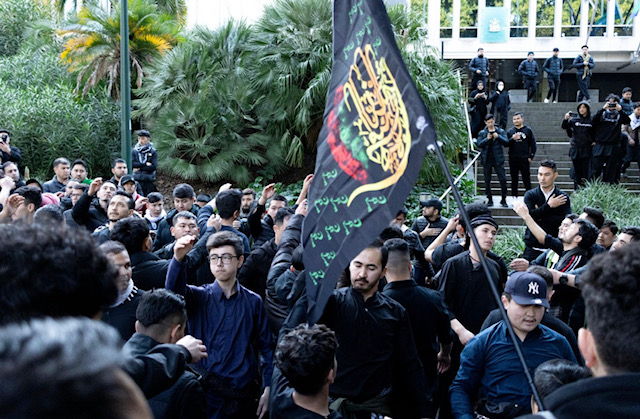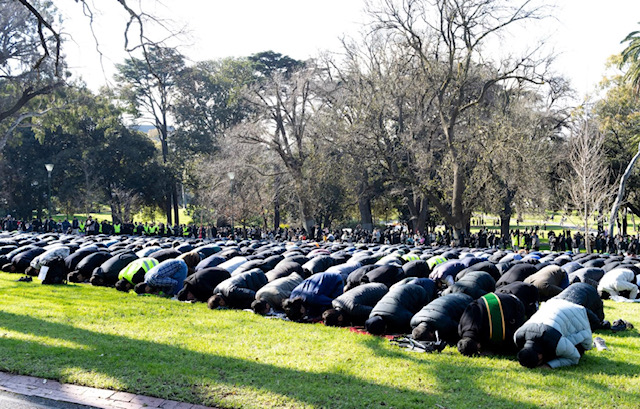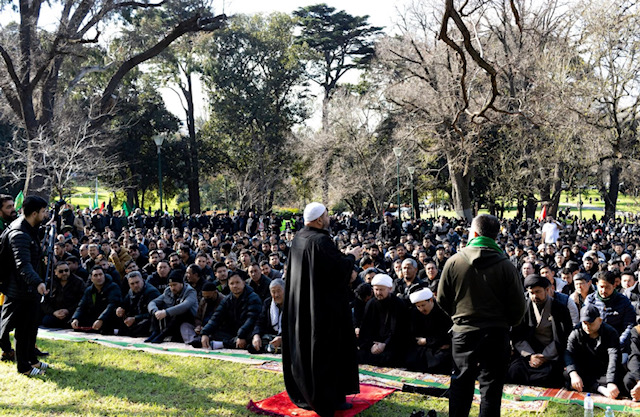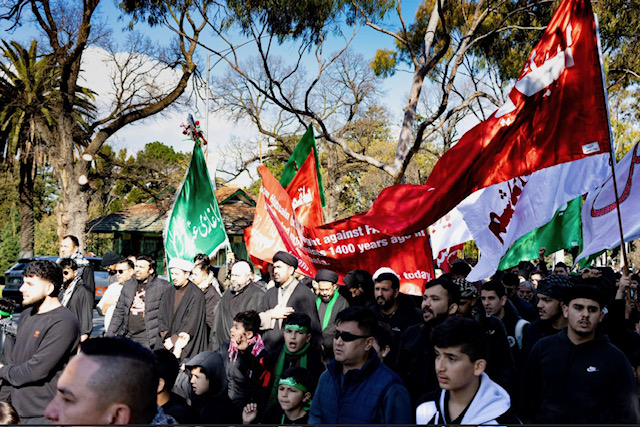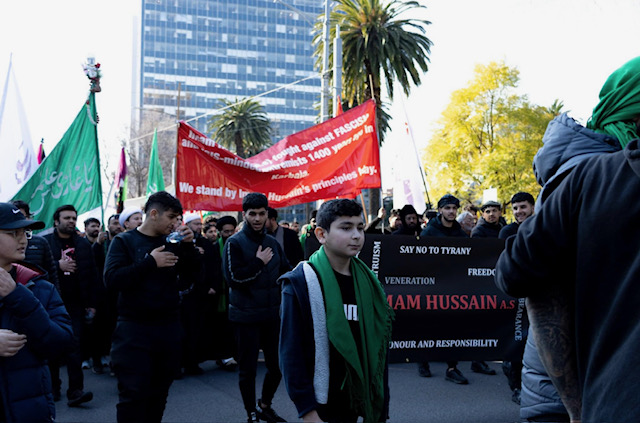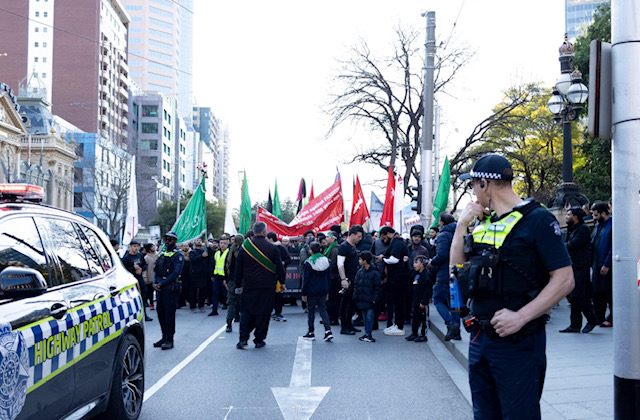Muslims all over Melbourne will gather united for the annual Ashura procession to commemorate the martyrdom of Imam Hussain (a.s) Prophet Muhammed’s (a.s) grandson.
This is the 10th annual procession in observance by the Melbourne Muslim community however, Ashura is observed by Muslims world-wide.
The communities will gather on Saturday 29 July at Treasury Gardens for prayer before the procession is led by great Muslim scholars which will end in Parliament House.
Victoria Police say they expect anywhere between 3,000 to 5,000 people to attend.
“Victoria Police is aware of the annual Ashura Procession taking place in Melbourne and are expecting this to be a peaceful event.
“We will be in the area to ensure the safety of attendees and the broader community.
“We look forward to ensuring this significant occasion for the Shia community is a safe one.
“Victoria Police respect the right for individuals to practice their faith and is proud to police a diverse multi-faith and multicultural community.”
What exactly is Ashura and why is it widely commemorated?
Ashura literally means 10 in Arabic, so it’s the 10th day of Muharram, the first month of the Islamic calendar.
Muharram is the most sacred month after Ramadan, and although it’s the first month in the Islamic calendar, it’s not celebrated by Shia Muslims as this is the month where Prophet Mohammad’s grandson, his family members and companions were brutally martyred by the tyrant ruler of the time, Yazid of the Umayyad caliphate.
The Battle of Karbala in Iraq in 680 AD is where thousands of Yazid’s army fought against the small 72 army of Imam Hussain and blocked them from water for the entire duration.
The small number comprised of family members as young as 6-month-old Ali Asghar, Imam Hussain’s youngest child, martyred by a three headed arrow which was used to hunt down animals.
These great sacrifices and many more were made by Imam Hussain, his family and companions to stand up against corruption and injustice and has since become a symbol of humanity.
These events took place 1,400 years ago so it’s seen as an event from the past by some and some even question the commemoration of Ashura and the mournful month of Muharram.
“It’s similar to the Christian observance of Easter – we might similarly argue why should Christians remember something that reportedly happened 2000 years ago? Isn’t it time to get over it?” Dr Rachel Woodlock says.
An academic, researcher, writer, Ms Woodlock teaches about Islam and Muslims as a lecturer in the University of Melbourne.
“Theologically, Ashura is remembered by Shia Muslims as just as important today because it represents the cosmic battle in which good will finally triumph over evil.
“Imam Husayn’s martyrdom is seen as a type of ‘redemption’ and that without his sacrifice, the light of Islam would have been extinguished.
“But that is not how theology and belief work. There is a famous saying: ‘Every day is Ashura, every land is the Karbala’ that people like the Iranian sociologist and thinker Ali Shariati use to mean that this cosmic battle between good and evil is ongoing.”
The story of the Battle of Karbala unfolds stories of the tragedy, injustice and inhumanity to name a few.
Shia Muslims mourn through gatherings known as Majlis where the stories of each martyr are told, they beat their chest in unification out of grief, wear black clothes and carry flags in red, flag, green with names of different martyrs.
Till this day, Ashura and Muharram in general transcends all faith as it’s also observed by non-Muslims such as Christians and Sikhs.
“The Sunni love for the family of the Prophet is oft-forgotten too and although Sunnis may not observe the day in the same way, it is worth noting that all Muslims believe that we are all held accountable for how we live our lives and that choosing good over evil is a constant struggle that is part of the nature of this earthly reality,” Ms Woodlock said.
Ms Woodlock’s works are known internationally such as her co-edited Fear of Muslims? International Perspectives on Islamophobia with Douglas Pratt, an evidence-based examination of Islamophobia in both ‘old-world’ Europe and the ‘new-world’ of America and Australia, and also Southeast Asia.
She also co-wrote For God’s Sake: An Atheist, a Jew, a Christian and a Muslim Debate Religion, discussing some of life’s biggest questions.
‘Alayhi Salam’ (a.s) followed by the names in the body translate to ‘Peace be upon him’ out of respect.

